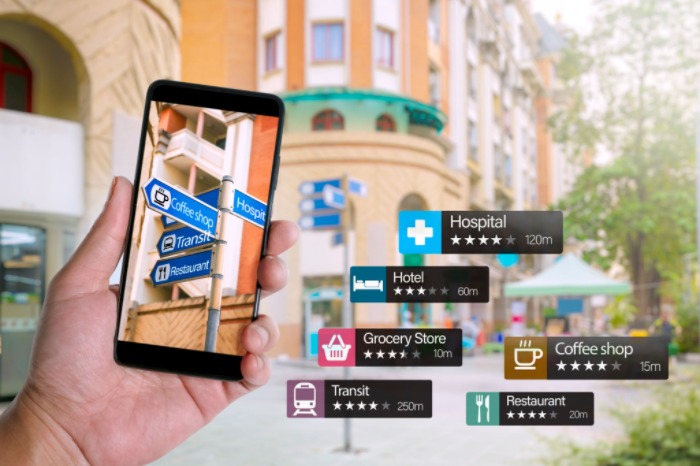The hotel customer journey is a holistic concept that encapsulates every interaction a guest has with a hotel, from initial awareness to post-stay engagement. This journey is critical in shaping the guest’s overall experience and perception of the hotel brand. For short-term rental hosts, understanding and adapting the nuances of this journey can be pivotal in elevating their guest experience and competitive edge.
Understanding the Customer Journey in Hotels
The journey begins the moment a potential guest becomes aware of a hotel, whether through online search, advertisements, or word-of-mouth. This phase is characterised by the guest’s exploration and consideration of various options. What sets the hotel industry apart in this stage is its emphasis on branding and tailored marketing strategies that cater to specific guest demographics.
As the journey progresses, the potential guest moves into the booking phase, where user-friendly reservation systems, transparent pricing, and personalised options play a crucial role. The hotel industry often leverages technology and customer data to streamline this process, offering a seamless booking experience that short-term rental hosts can learn from.
Following booking, the pre-arrival phase in the hotel customer journey is critical for setting expectations. This stage involves communication strategies that keep the guest informed and excited about their stay. Hotels often utilise automated messaging systems, personalised emails, and mobile applications to enhance guest engagement during this phase.
The actual stay represents the core of the guest experience, where the quality of service, amenities, and overall hospitality are put to the test. The hotel industry understands that this phase is about creating memorable experiences, often achieved through exceptional customer service, attention to detail, and responsiveness to guest needs.
Post-stay engagement is the final phase of the hotel customer journey. This stage is crucial for building loyalty and encouraging repeat visits. Hotels often seek feedback, offer loyalty programs, and maintain communication through marketing campaigns to keep the brand top of mind for guests.
Integrating customer service with technology, such as AI analytics, can help predict and address guest needs more effectively
Importance for Short-Term Rental Hosts
For short-term rental hosts, understanding the hotel customer journey offers numerous benefits. It provides insights into creating a more professional and guest-centric experience. Hosts can learn how to effectively market their properties, streamline the booking process, and enhance guest satisfaction during the stay. Additionally, adopting strategies for post-stay engagement can significantly improve guest retention and referrals.
The hotel customer journey, with its focus on guest satisfaction at every touchpoint, sets a high standard for the hospitality industry. Short-term rental hosts who adapt these principles to their unique settings can create standout experiences that rival traditional hotels.
Overview of the Hotel Customer Journey Map
The hotel customer journey map is a visual representation of the steps a guest takes from considering a stay to the post-stay phase. It’s a tool that helps hoteliers understand and improve the guest experience by identifying key touchpoints and potential areas for enhancement.
Definition and Components
A hotel customer journey map typically includes the following stages:
1. Awareness:
The stage where potential guests first learn about the hotel.
2. Consideration:
Guests evaluate the hotel among other options.
3. Booking:
The process where guests make a reservation.
4. Pre-Arrival:
The period between booking and arrival at the hotel.
5. Stay:
The actual experience of staying at the hotel.
6. Post-Stay:
Follow-up interactions after the guest’s stay.
Each of these stages encompasses various touch points – moments where the guest interacts with the hotel brand. These touchpoints could range from browsing the hotel website to checking out and receiving follow-up emails.
The map also considers the emotional journey of the guest, noting their feelings, expectations, and satisfaction levels at each stage. This emotional component is crucial as it directly impacts the guest’s overall perception and likelihood to return or recommend the hotel.

Comparison with Short-Term Rental Guest Experiences
While the core stages of the hotel customer journey map are similar to those in short-term rentals, there are notable differences in how these stages are executed. For instance, short-term rental hosts often rely heavily on platforms like Airbnb or VRBO for awareness and booking, which differs from the direct booking channels frequently used by hotels.
Additionally, the personalization and individuality of short-term rentals mean that each touchpoint has the potential to be more personalised and unique compared to the often standardised processes of hotels. This personal touch can be a significant advantage for short-term rental hosts, allowing them to create a more intimate and memorable guest experience.
Booking Journey: The Starting Point
The booking journey is a critical segment of the hotel customer journey, as it marks the transition from potential guest to confirmed visitor. This phase encompasses the guest’s experience from the moment they decide to book a stay until the reservation is confirmed.
Detailed Analysis of the Booking Journey in Hotels
In the hotel industry, the booking journey is meticulously designed to be efficient, user-friendly, and reassuring. It starts with a potential guest navigating the hotel’s website or a third-party booking platform. The key here is the ease of finding relevant information such as room types, rates, amenities, and availability. Hotels often invest in high-quality visuals and detailed descriptions to aid guests in their decision-making process.
The next step is the actual reservation process, which is streamlined to minimise friction. Hotels employ intuitive booking systems that guide the guest through selecting dates, rooms, and any additional services. This process is often accompanied by transparent pricing, flexible cancellation policies, and secure payment gateways, aiming to build trust and confidence in the guest.
Finally, the booking journey culminates with a confirmation message or email, often personalised and containing essential information about the stay. This communication reassures the guest of their successful booking and sets the tone for their upcoming experience.
Key Takeaways for Short-Term Rental Hosts
Short-term rental hosts can learn much from the hotel booking journey. Prioritising a straightforward and reassuring booking process is crucial. Hosts should ensure their listings on rental platforms are complete with high-quality images, detailed descriptions, and clear information about pricing and availability. Implementing a smooth and transparent booking process, coupled with immediate and clear communication post-booking, can significantly enhance guest confidence and satisfaction.
Identifying Points of Contact in a Guest’s Experience
Each interaction between the host and the guest, known as a point of contact, is an opportunity to impress and enhance the guest’s experience. Identifying and optimising these points of contact can significantly influence the overall satisfaction of the guest.
Exploration of Points of Contact
In the hotel industry, numerous points of contact exist throughout the guest journey. These include interactions during booking, pre-arrival communications, check-in, interactions with staff during the stay, any requests or issues handled, check-out, and post-stay follow-ups.
For short-term rental hosts, the points of contact may differ slightly but are equally important. These can range from initial inquiries, booking confirmations, pre-arrival instructions, welcome messages, availability for questions or concerns during the stay, check-out instructions, and post-stay thank you messages or reviews.
Strategies for Short-Term Rental Hosts
To optimise these contacts, short-term rental hosts should focus on responsiveness, personalization, and proactivity. Responding quickly to inquiries and requests builds trust and reliability. Personalising communication, such as using the guest’s name or providing tailored recommendations, enhances the guest’s experience. Being proactive, like sending check-in instructions ahead of time or checking in with the guest during their stay, demonstrates care and attention to detail.
Navigating the Guest Journey in Hospitality
The guest journey in a hotel encompasses the entire experience from pre-arrival to post-departure. Each phase of this journey offers unique opportunities for engagement and service.
In-Depth Look at the Guest Journey in a Hotel Setting
The hotel guest journey is meticulously planned to ensure maximum guest satisfaction. Pre-arrival communications are often used to build excitement and provide essential information. The arrival and check-in process are streamlined for convenience, often coupled with a warm, personal welcome.
During the stay, hotels focus on providing exceptional service, from the cleanliness and comfort of the rooms to the availability of amenities and responsiveness of staff. Any guest requests or issues are handled promptly and efficiently, often exceeding guest expectations.
Check-out processes are designed to be smooth, with the aim of leaving a lasting positive impression. Post-departure, hotels engage with guests through thank-you messages, feedback requests, and marketing communications to maintain the relationship and encourage future bookings.
Translating These Practices to Short-Term Rentals
Short-term rental hosts can adopt similar strategies to enhance their guest journey. Personalised pre-arrival messages can set a welcoming tone. Ensuring a smooth check-in process, whether in-person or through clear self-check-in instructions, starts the stay off on the right foot.
During the stay, hosts should be accessible and responsive to any guest needs or inquiries. Providing local recommendations and ensuring the property is well-maintained can significantly enhance the guest’s experience. Post-departure, following up with a thank you message and requesting feedback demonstrates appreciation and commitment to continuous improvement.
Enhancing the Hotel Guest Experience Journey
The hotel guest experience journey is a composite of every interaction and impression a guest has during their stay. In the hotel industry, this journey is carefully orchestrated to ensure maximum guest satisfaction and loyalty.
Breakdown of the Hotel Guest Experience Journey
The journey begins with the guest’s arrival and check-in, where first impressions are crucial. Hotels often focus on a swift, personalised check-in process. During the stay, the emphasis shifts to comfort, convenience, and responsive service. This includes everything from the quality of the room, availability of amenities, to the attentiveness of the staff.
Dining experiences, leisure activities, and additional services offered by the hotel also form integral parts of the journey. These aspects are tailored to enhance the overall experience, providing guests with convenience and luxury.
Finally, the check-out process and post-departure engagement are designed to leave a lasting positive impression. Efficient check-out procedures, coupled with follow-up communications, such as satisfaction surveys and personalised thank-you messages, help in retaining guests for future stays.

Actionable Insights for Short-Term Rental Hosts
Short-term rental hosts can enhance their guest experience by focusing on similar touchpoints. Personalised and efficient check-in and check-out processes, ensuring the comfort and cleanliness of the accommodation, and being responsive to guest needs during their stay are crucial. Additionally, providing local experience guides, amenities, and personalised touches can significantly elevate the guest experience.
Conclusion
Understanding and implementing strategies from the hotel customer journey can provide short-term rental hosts with a competitive edge in the hospitality industry. By focusing on creating a seamless booking journey, optimising points of contact, and enhancing the overall guest experience, hosts can significantly improve guest satisfaction and loyalty.
Remember, in the world of hospitality, every interaction counts. Whether you’re a seasoned host or just starting out, consider these insights as stepping stones to creating memorable experiences for your guests. Ready to elevate your guest experience? Start implementing these lessons from the hotel industry today.
